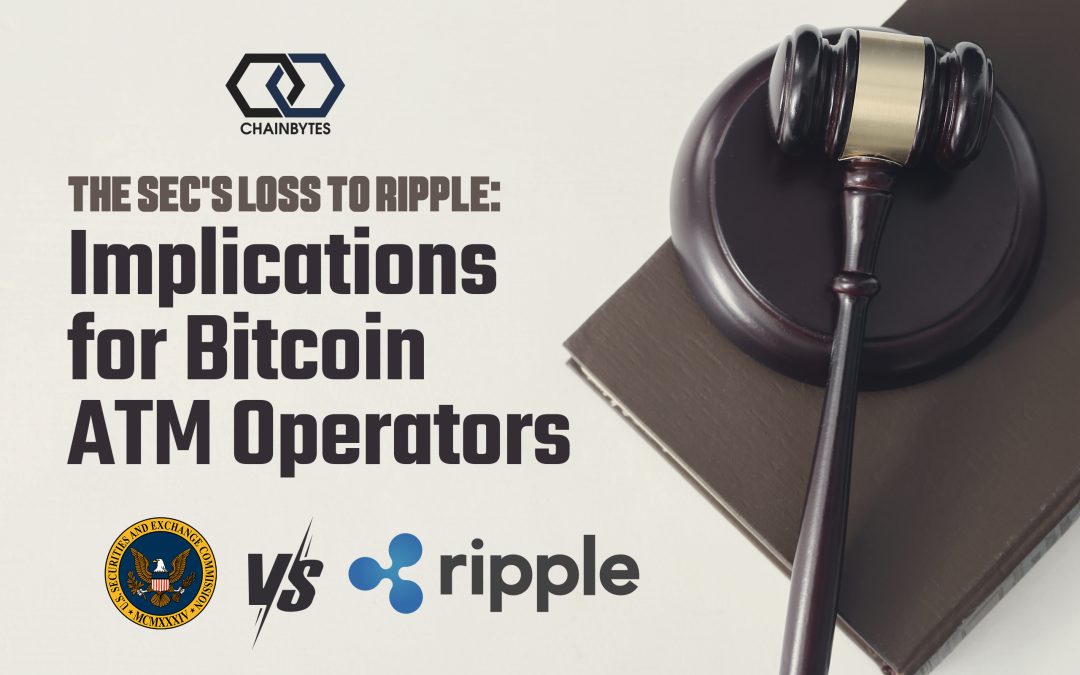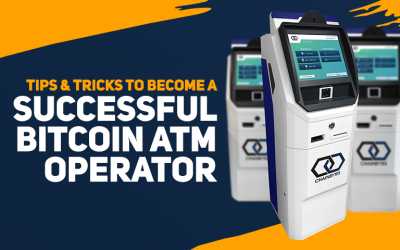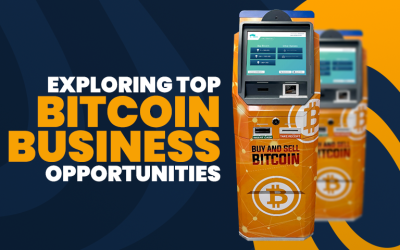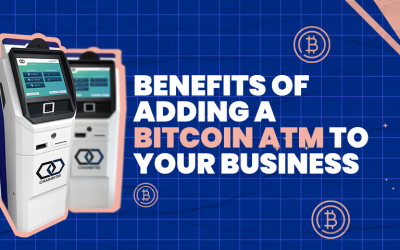In the world of digital assets, there’s a notable transformation happening. The recent lawsuit of Ripple Labs versus the Securities and Exchange Commission (SEC) has far-reaching implications for the cryptocurrency industry.
Notably, the ruling has clarified some muddy waters for Bitcoin ATM operators. But how exactly did this happen? Let’s explore.
Understanding the Ripple vs SEC Lawsuit
The Ripple lawsuit has been a landmark case in the realm of digital asset regulation, one that institutional investors and retail investors alike have watched closely.
Ripple Labs and the allegations
The story began when the SEC filed a lawsuit against Ripple Labs under the Securities Act. Ripple, known for its programmatic sales of the XRP token, was alleged by the SEC to have conducted an unregistered securities offering.
The SEC argued that the XRP sales constitute investment contracts. Thereby falling under the purview of securities transactions and, hence, the Securities Exchange Act.
The role of XRP sales
Crucial to the SEC’s argument was the concept of ‘investment contracts.’ The SEC alleged that Ripple raised funds through the sale of XRP tokens to institutional buyers and retail investors.
These XRP sales were more akin to the sales of investment contracts rather than just digital assets. Thus subjecting them to the stringent requirements of securities laws.
The Verdict
Summary judgment
The case went to the Southern District Court of New York, where the summary judgment motions were reviewed by Judge Analisa Torres.
Judge Analisa Torres’ ruling
The court ruled in Ripple’s favor, concluding that the XRP token did not constitute an investment contract under the current interpretation of the Securities Act. Judge Torres noted that the “economic reality” of the XRP sales did not align with the concept of an ‘investment contract,’ therefore exempting them from registration requirements under federal securities laws.
The Implications for the Securities and Exchange Commission
Reassessing the Securities Act
The SEC’s loss implies a need for reassessing the application of the Securities Act and the Securities Exchange Act to digital assets like XRP. This landmark ruling could shape the future of how digital assets are classified under federal securities laws.
Securities Exchange Act and the concept of “Investment Contract”
The judgment adds a new layer of complexity to the definition of ‘investment contracts’ in the context of digital assets. The court’s decision indicates that not all digital asset sales can be considered securities transactions, posing a potential challenge to the SEC’s current regulatory framework.
What This Means for Ripple Labs
Impact on Institutional Sales
This ruling has a significant impact on Ripple Labs, especially regarding its institutional sales. The court’s decision validates Ripple’s position that its sales of XRP did not constitute an unregistered securities offering, a conclusion that could help Ripple Labs increase its institutional sales without fear of violating securities laws.
Ripple’s programmatic sales and the question of ‘unregistered securities offering’
The decision also vindicates Ripple’s programmatic sales approach. The court’s interpretation essentially categorizes Ripple’s sales as a digital asset transaction, not an unregistered securities exchange. This distinction provides a clear path for Ripple to continue its XRP sales without the looming threat of regulatory action for securities violations.
The Ripple Effect on Bitcoin ATM Operators
The importance of ‘regulatory clarity’
The Ripple vs SEC case offers a measure of regulatory clarity for Bitcoin ATM operators. The ruling delineates a boundary between securities transactions and digital asset transactions, a distinction that can help Bitcoin ATM operators navigate the regulatory landscape with greater certainty.
Impacts on the operations of Bitcoin ATMs
By ruling that Ripple’s XRP sales did not constitute an unregistered securities offering, the court indirectly provides a guideline for Bitcoin ATM operators. Operators can now feel more confident that transactions involving digital assets like Bitcoin do not inherently constitute securities transactions, thereby reducing the regulatory risk.
Looking Ahead: The Future of Digital Assets Regulation
Is XRP a sufficiently decentralized digital asset?
Despite the court’s ruling, the conversation around digital asset regulation is far from over. As digital assets evolve, so too will the discussion on their regulatory classification. It raises questions such as: Is XRP a sufficiently decentralized digital asset? If not, what level of decentralization is needed to avoid being classified as a security?
Federal securities laws and digital assets
These questions point to a need for more specific guidance from regulatory authorities like the SEC. Federal securities laws will need to adapt to the realities of digital assets, potentially leading to an updated framework for assessing whether a digital asset is an ‘investment contract’ or not.
The path towards regulatory certainty
For now, though, the Ripple vs SEC ruling provides valuable regulatory clarity. It’s a step towards a more certain future for Bitcoin ATM operators and the broader cryptocurrency industry. The ruling indicates a path that operators and companies can tread, with a clearer understanding of what constitutes an investment contract, and by extension, a security.
Indeed, the outcome of the Ripple vs SEC case shines a light on the potential future of regulatory certainty in the digital assets world. As we tread into this new era, Bitcoin ATM operators and other players in the crypto space can take a cue from this landmark case, learning from Ripple’s experience, and striving for a smoother sail in the vast sea of digital assets.
Follow us on Social Media:
In the meantime, you can follow us on our channels, visit our website, or call us directly!
Check out our website, https://www.chainbytes.com
Give us a call! +1 (415) 529-5777 or shoot us an email.
Related News
Tips & Tricks to Become a Successful Bitcoin ATM Operator
The cryptocurrency market offers exciting opportunities for entrepreneurs, with the Bitcoin ATM business standing out as particularly promising due to the increasing global adoption of digital currencies. Bitcoin ATMs facilitate the buying and selling of Bitcoin and other cryptocurrencies, bridging the gap between digital and traditional transactions. Success in this industry requires strategic planning, effective execution, and ongoing management. This guide covers essential tips, including understanding market trends, selecting the right ATM, securing funding, choosing ideal locations, ensuring regulatory compliance, and providing excellent customer support, all crucial for thriving in the Bitcoin ATM business.
Exploring Top Bitcoin Business Opportunities
The cryptocurrency revolution has unlocked numerous business opportunities, with Bitcoin at the forefront as the most recognized digital currency. Entrepreneurs globally are leveraging Bitcoin’s decentralized nature and increasing adoption to innovate. This article explores the top 5 Bitcoin business opportunities for 2024, offering insights into their potential and steps to get started, including Bitcoin ATMs, mining operations, education services, merchandising, and exchange platforms.
The cryptocurrency revolution has opened up numerous business opportunities, with Bitcoin leading the charge as the most recognized and valuable digital currency. Entrepreneurs worldwide are leveraging Bitcoin’s decentralized nature, robust security, and growing adoption to create innovative business models. This article delves into the top 5 Bitcoin business opportunities for 2024, offering insights into their potential and how you can get started.
Benefits of Adding a Bitcoin ATM To Your Business
In recent years, cryptocurrencies have surged in popularity, driving demand for easy ways to convert fiat into crypto. Bitcoin ATMs (BTMs) have emerged as a convenient solution, allowing users to purchase cryptocurrencies with cash. According to CoinATMRadar, over 38,000 Bitcoin ATMs are active across 70 countries, highlighting a significant business opportunity. This blog explores the potential benefits of incorporating Bitcoin ATMs into your business
Order a Bitcoin ATM
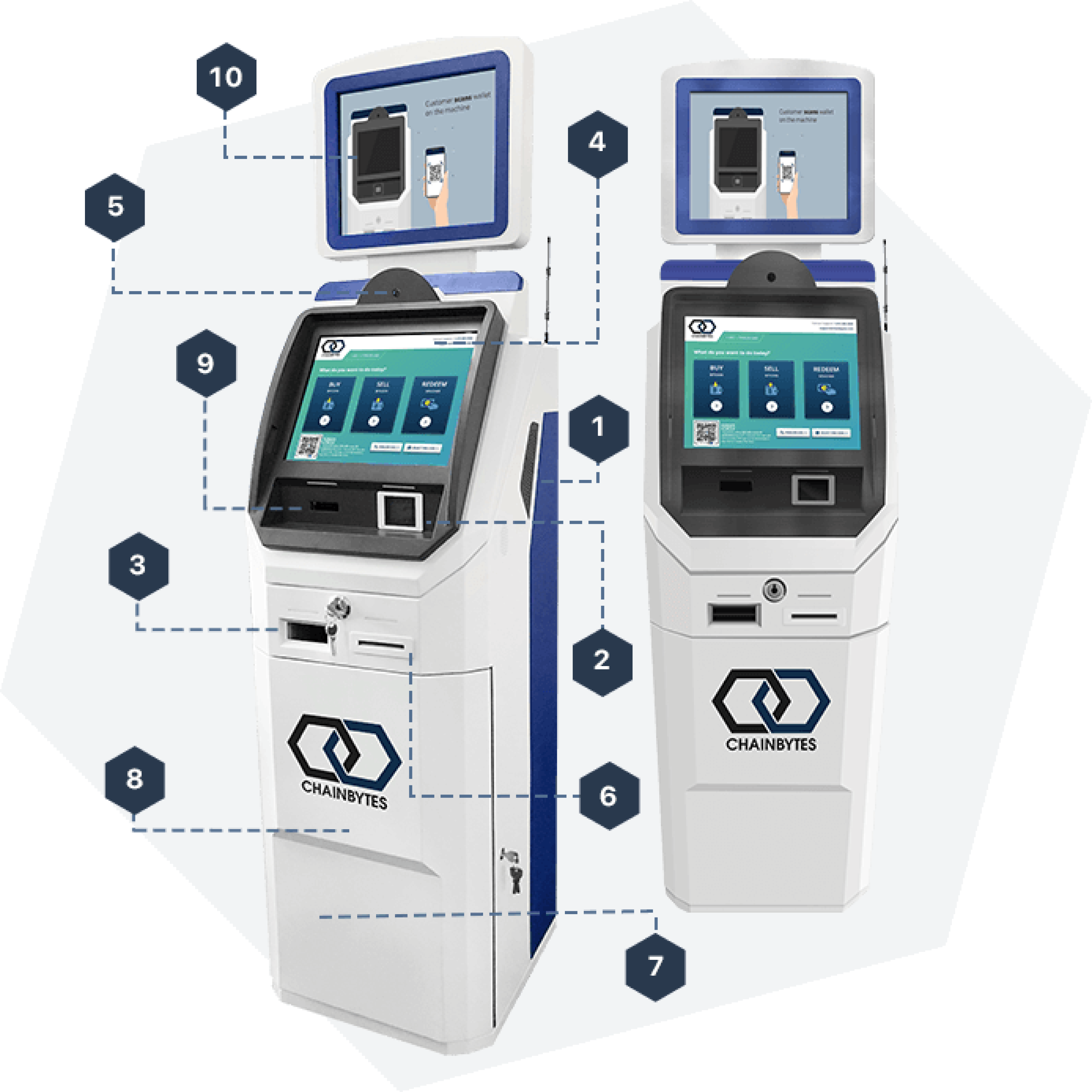
ChainBytes Universal + Top screen
From $6,700
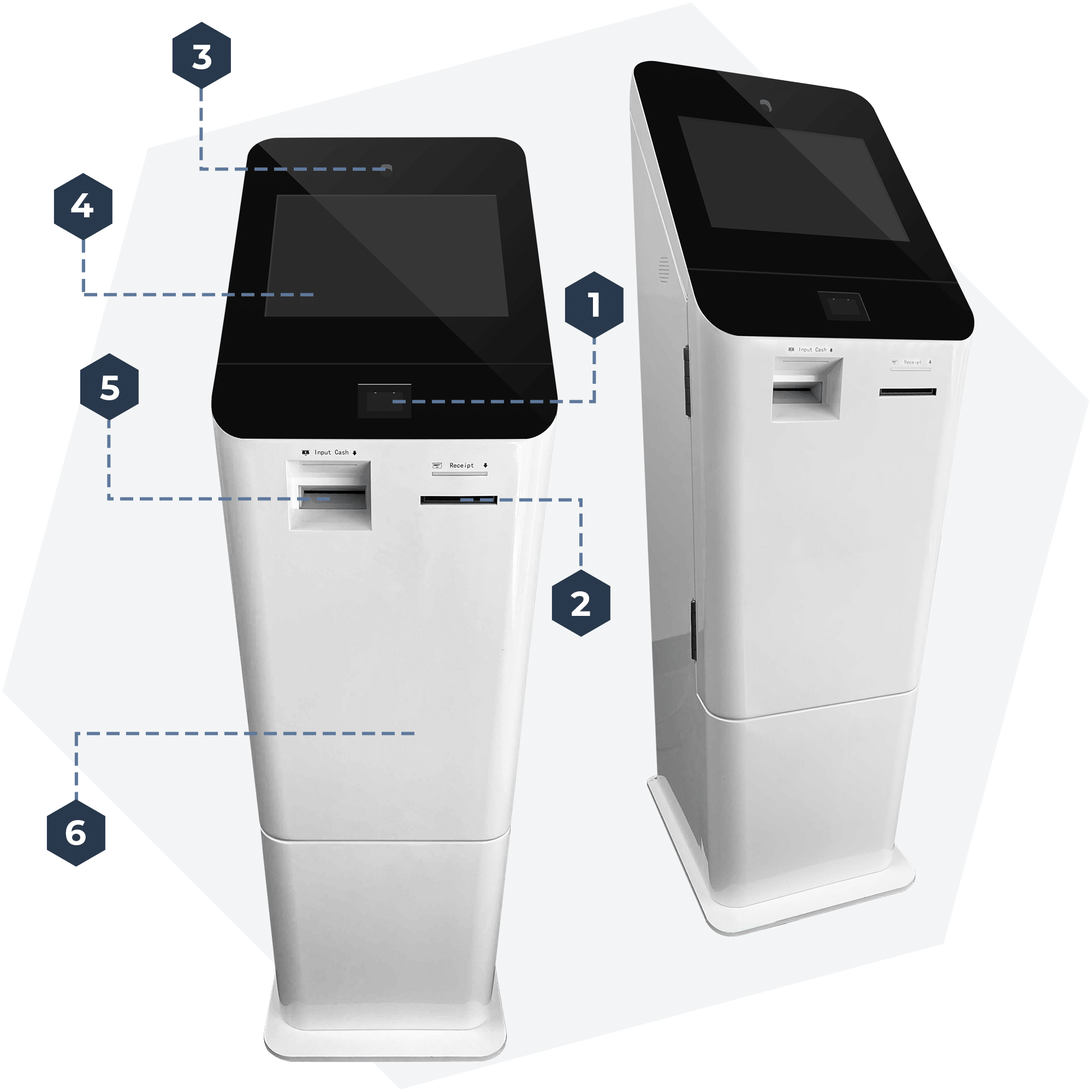
ChainBytes Model V
From $4,999

ChainBytes Model V
From $4,999

ChainBytes Universal + Top screen
From $6,700

